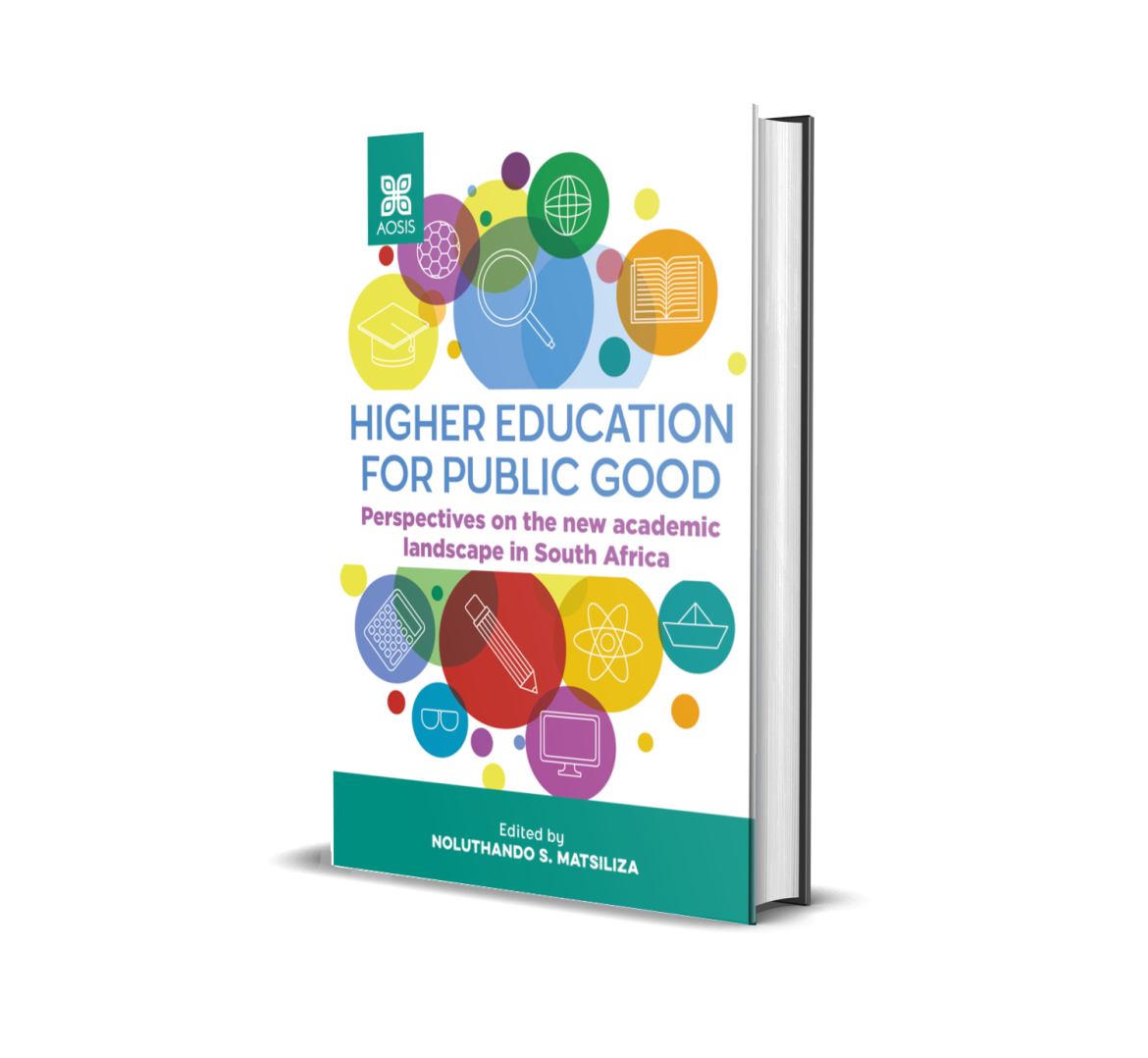Higher education for public good: Perspectives on the new academic landscape in South Africa is published by AOSIS Scholarly Books.
This book focuses on the knowledge area of higher education governance, organisational dynamics, leadership and decolonisation. We have observed that governance discourse has been excluded in debates that concern the public good. The construct of public good seeks to support higher education that does not support a capitalist view of profit-making, arguably to respond to societal demands and needs such as developmental efforts through academic functions.
Higher Education focuses on interconnected multi-disciplinary constructs, intending to provide services for the public good. The issue of public good is an interesting construct that puts universities on the spot since they are expected to be responsive to environmental changes and stakeholder needs through the functioning of accountable governance structures. These governance structures are compelled to comply with policy demands within external and internal environmental factors. This experience has exposed universities to systematic challenges that are local, regional and global, and which forces them to adapt while serving stakeholders and society. This book will also interrogate the governance of South African public universities in the post-decolonisation era and new demands from stakeholders.
Copyright (c) 2022 Noluthando S. Matsiliza (Volume editor)
This book provides a fresh entry point into the debate of decolonisation of higher education in South Africa and education for the ‘public good’.
Recently, this debate has been dominated by the decolonial school of thought. The debate around the decolonisation of higher education can be demarcated along two streams: decolonisation of curricula, mainly discussed as epistemic freedom, and secondly, access to higher education by students from previously disadvantaged backgrounds.
Epistemic freedom is a debate among scholars with a global reach. From this perspective, the book fills a critical gap, reflecting education’s responsiveness to societal needs. Thus, the book emphasises the importance of tertiary education as offered by higher education institutions (HEIs) that are inextricably connected to their societies, not by ivory towers.
The book has a specific focus on assessments and how universities were forced to adapt to the changing realities brought about by the outbreak of COVID-19. This study complements old debates about a university’s relevance to society and its responsiveness to new challenges like the COVID-19 pandemic.
Dr Frank Gadiwele Lekaba, Department of Politics and International Relations, Faculty of Humanities, North-West University, Vanderbijlpark, South Africa

